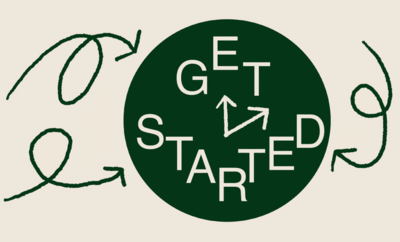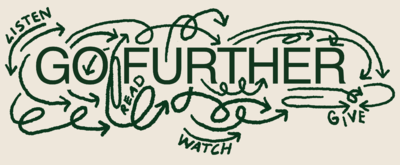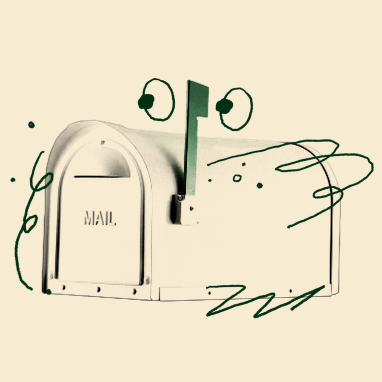
Welcome to your first email in The Reset. Each week we’ll be sending you two emails on our weekly theme: one offering an overview and one featuring a personal essay. Our kickoff theme is Play, so bust out your silly string and glow sticks.
Curious about who we are? Our about page should answer all your burning questions. (And if you want to get excited about what to expect over the course of your eight weeks, check out our contributor page.) Have feedback? We’d love to hear from you.
Thanks for inviting us into your inbox, we’re excited to be here!
- The Prism Team

Take a glance at your calendar. You’re a busy person! We’ve been programmed to see a packed planner as a badge of honor, but maybe we shouldn’t be so eager to fill in the blanks. Humans are designed for work and play. We need a break, and recreation and creative outlets help preserve our physical and emotional well-being. But hobbies have fallen by the wayside as we live our lives a mile a minute.
“In America, there’s a history of this Protestant work ethic, so people still think it’s best that one works. But work doesn’t always center our wellness,” says Dr. Robert Stebbins, a sociologist who studies leisure.
It shouldn’t be this way. The Industrial Revolution mechanized the output of workers, reducing working hours for many and changing the shape of labor forever. As a civilization, we all agreed leisure was an extremely good idea, putting “the right to rest and leisure” in the 1948 Universal Declaration of Human Rights. And yet, Americans now work more hours than people in any other industrialized nation. Somewhere along the way we lost play. How do we get it back?

As it turns out, the science backs up the value of play:
Better overall health: People who frequently engage in hobbies, sports, or just spending time in nature enjoy lower blood pressure, lower levels of cortisol (the stress hormone), a lower body mass index, and greater longevity, according to a study review from the National Institutes of Health. “Leisure helps our bodies to recover from stress,” says Dr. Matthew Zawadzki, a professor of health psychology at the University of California, Merced.
Less mental stress too: Hobbyists and weekend warriors also suffer from less depression and anxiety. Leisure seems to “buffer the damaging effects of stress,” Zawadzki explains, allowing us to cope better with adverse life events.
Greater creativity: Creative hobbies expand our imagination. For Stella Grizont, who earned a master’s in positive psychology (aka the science of happiness) and designs interactive “play experiences,” a playful mind is more receptive to flow, which is a state of complete immersion and awareness, where you get pleasurably lost in what you’re doing. “Play encourages neuroplasticity—our brain’s ability to create new neural pathways to respond to our environment,” Grizont says. “When you’re in flow, you’re able to take in more information and make new connections.” In other words, play gets our creative juices flowing.

In the US, children are encouraged to leave play behind (presumably for more serious pursuits) as early as kindergarten. A recent study by the American Academy of Pediatrics concluded that this has a detrimental effect on their development as “Play is fundamentally important for learning 21st century skills, such as problem solving, collaboration, and creativity.” The superior test scores of teenagers in a country like Finland, with its play-based early education curriculum, suggest that play is indeed a critical component to learning.

Why don’t we play more? Time. We feel like we don’t have room for anything not tied to productivity. But is that really true? Recent surveys from the Bureau of Labor Statistics reveal most Americans do, in fact, have free time. So the first step is to look for those small pockets of time.
While you’re at it, check whether your leisure is active or passive. Active leisure means you’re alert and engaged. While it can include physical movement like dancing or running, it doesn’t have to. Even coloring counts. Passive leisure, on the other hand, is being sedentary in mind and body (zoning out for three seasons of a Real Housewives, scrolling endlessly through TikTok). “We all need to do something at the end of the day to decompress. So what winds up happening is we do the worst form of leisure, where we just sit on our couch and watch TV for hours,” says Dr. Zawadzki.
This aimless consumption of television just makes us feel crummier. Research has linked media binging to depression, loneliness, and a lack of self-control. When you cut away the less desirable pastimes, you might discover you have time for that nature walk or salsa class after all.

Remember that the purpose of a hobby isn’t to become great at it. “In our work lives and our relationships, we’re striving to be the best. Leisure is meant to be a break from that need to overperform,” says Dr. Zawadzki. “It’s a chance to show ourselves self-compassion.”
Pleasure, not perfection, is the point.
Here are three ways to find a hobby right for you:
Do an excitement inventory
What do you already enjoy doing? Grizont suggests jotting down whatever brings you a surge of energy during your day. Do you always notice the lighting or colors in a room? Maybe amateur photography is your jam. Love babying your houseplants? You might enjoy planting a vegetable or herb garden.
Take it back to childhood pleasures
What fun stuff do you miss? Drawing? Shooting hoops? Our early years can unlock secrets to what we loved before our lives became consumed by the ambitions of adulthood. Yes, it might feel weird at first to tap into your inner kid, but the key to greater fulfillment might be in a playground memory you had long forgotten.
Try the spaghetti on the wall method
Rather than investing in one expensive course, sample a few activities you might find fun—go to a one-off sip and paint event, pick up your long-abandoned guitar.

Listen:
For active leisure ideas, tune in to the podcast “Time for Your Hobby”—host Alex Hobby interviews a different hobbyist each week.
Read:
Get into the mindset with Play: How It Shapes the Brain, Opens the Imagination, and Invigorates the Soul by psychiatrist Dr. Stuart Brown, founder of the National Institute for Play.
Watch:
Get inspired to play like a kid by watching this TEDx talk on its importance from Yolonda Tyler.
Give:
Get serious about making sure kids in marginalized communities have access to safe playgrounds. Donate to Kaboom!, a nonprofit that pushes for “playspace equity” for all children regardless of race or zip code.

Prism Postcards takes the cringe out of wellness. It’s smart, inclusive, and funny. Sign up and get it delivered to your inbox every other week.

